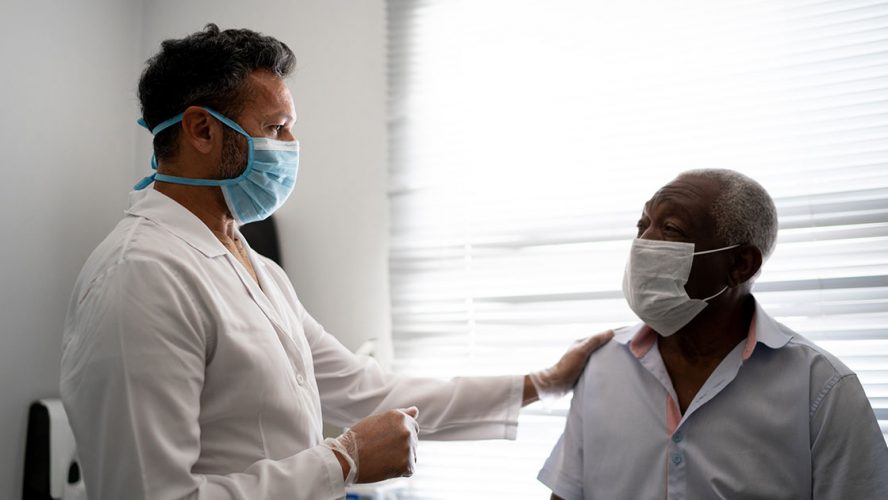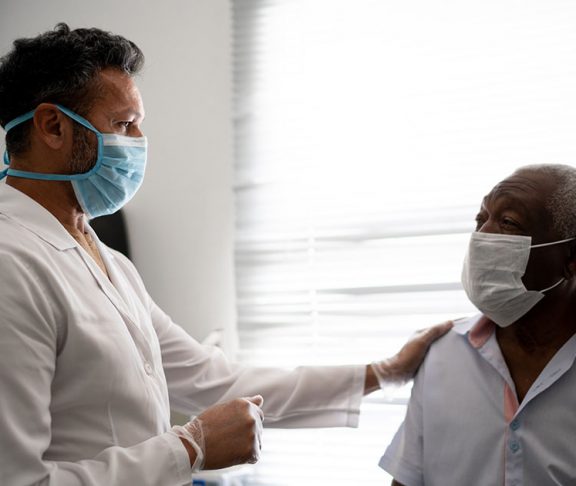Prostate cancer is the second-most common cancer found in men, but has a 100 percent 5-year survival rate — when caught early. While some prostate cancers grow slowly, more aggressive cases are often initially treated with surgery or radiation. If those approaches aren’t effective as a cure and the tumor advances, there’s another option: hormone therapy.
“Prostate cancer’s basic food is testosterone,” explains Stuart Atkinson, MB, ChB, vice president and head of medical affairs at Tolmar Pharmaceuticals, Inc. “So some of the therapies designed to treat it either reduce the amount of testosterone in the blood, or block the action of testosterone in the tumor.”
Suppression
Reducing testosterone used to be achieved surgically or via the use of medicines known as androgen blockers. Today, the treatment, also referred to as androgen deprivation therapy (ADT), is usually given as a series of regular injections at 1-, 3-, 4-, or 6-month intervals.
“That makes adherence to the schedule paramount,” explains Jason M. Hafron, M.D., associate professor of urology at the William Beaumont School of Medicine and director of robotic surgery at Beaumont Hospital Royal Oak. “It’s critical that we adhere to the appropriate dosing of these drugs. Significant delays — sometimes lasting for weeks — result in a recovery of testosterone levels, which in turn lead to progression of disease and death from prostate cancer.”
Another significant factor is proper monitoring. “Men need to make sure their physician is checking their testosterone on a regular basis,” notes Dr. Hafron. “We recently performed a retrospective analysis of over 22,000 patients. We found that 87 percent of the patients are not being monitored appropriately.”
When many hormone therapies are started, there is a spike in testosterone levels, followed by a decline over a few weeks to low levels. When patients miss a scheduled injection, testosterone levels can rebound, which allows the tumor to grow again. Worse, when the patient resumes hormone therapy injections, their body can experience a second spike in testosterone, feeding the tumor even more.
Stigma and side effects
Dr. Hafron has been involved with several studies on adherence to hormone therapy. “We found that up to 60 percent of injections for the 28-day cycle were late by more than one week, and 29 percent were delayed by more than two weeks.”
One barrier to patient adherence is the side effects, which can include hot flashes, shrinkage of the testes, breast growth, fatigue, and mental “fogginess.”
“You have to place these side effects in context with the fact that they’re receiving treatment for advanced prostate cancer,” Dr. Atkinson points out. “With other medications, if you don’t like the side effects, you can just stop taking it. Here, the consequences of not being compliant with your prostate cancer medicine may be a lot more serious.”
Another barrier to compliance is the stigma men perceive with a treatment sometimes referred to as “chemical castration.” Battling that stigma is part of the treatment. “Physicians should include supportive and behavior-oriented therapies,” says Dr. Hafron. “Specifically, in our practice, we have found prostate cancer survivor support groups to be very helpful.”
“The most important thing is to have a frank, open, and honest conversation with the patient,” notes Dr. Atkinson. “As a hormonally driven cancer, hormone therapy is an important option. So you need to have a conversation with them saying, “the tumor has recurred, you may have had surgery to try and remove it, you may have had radiation therapy to try and kill it, but the tumor is coming back and it’s growing. We need to be thinking about the next stage of treatment — hormonal therapy.”
To learn more about hormone therapy and adherence, visit www.tolmar.com/.


